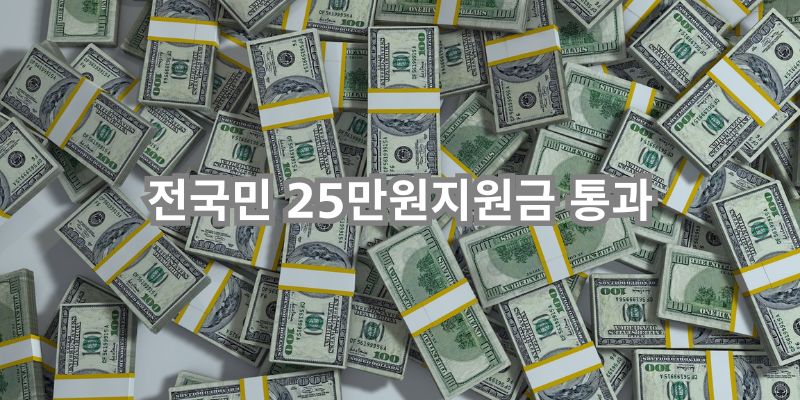
민생이 힘든 시민들을 위해 시민 정부는 어떠한 조치를 취하는 것이 당연한 일이다. “전국민 25만원” 지급은 경제적으로 힘든 시민들을 위한 하나의 방법이다. 설령 지급 방법이 현금이 아닌 지역사랑상품권이라도 개인에게는 조금이나마 보탬이 되는 것은 사실이다. 그리고 얼핏 보면 합당하게 보이는 정책을 “국가의 부채 증가”, “이재명 명령”이라는 일반 시민들이 실감이 안 되는 이유들로 반대를 한들 여론을 설득하기에는 역부족이다.
하지만 국민들을 위한 25만원 상당의 지급 정책은 섣부른 정치적 판단이라는 오명은 벗을 수 없다. 시민들의 경제적 상황이 힘들어진 이유는 너무나 복합적인 요인이기 때문이다. 특히나 세계 정치/경제에 영향을 많이 받는 한국의 경제적 구조임에도 불구하고 모든 문제를 개인의 영역에 한정지어 단순화했다는 것에 문제가 있다. 그리고 지급 방법과 지급 대상에 관한 사려 깊은 토론과 합의에 대해서는 들어본 적이 없다. 좀 더 신중하고 깊이 있는 토론이 필요하다.
민주당의 정책의 의도와 결단은 힘든 경제적 환경에서 생활하고 있는 시민들에게는 필요한 조치 중 하나였을 것이다. 하지만 이러한 조치의 과정은 아주 작은 단위의 공동체에서는 100퍼센트 올바른 결정이었다고 생각한다. 예를 들면 경제적으로 힘든 자식을 가진 부모 또는 가정에서는 충분히 통한다고 생각한다. (실제로 이러한 가정도 단순히 주는 것은 좋지 않을 경우도 있다) 하지만, 정책 결과의 수많은 경우의 수가 있을 경우에는 보다 신중하고 깊이 있는 태도가 요구된다. 이러한 정치적 신중함이 결여되었다는 점에서 우리는 반대를 한다.
25 Million Won National Support
It is natural for a civic government to take measures for citizens struggling with livelihood difficulties. Providing “25 million won per citizen” is one way to assist those facing economic hardship. Even if the distribution method is in the form of local love vouchers instead of cash, it still offers some help to individuals. And although the policy may seem reasonable at first glance, opposing it due to reasons like “increasing national debt” or “Lee Jae-myung’s order” does not effectively persuade the public.
However, the policy of providing 25 million won to citizens cannot escape the stigma of being a hasty political decision. The reasons behind the economic difficulties of citizens are highly complex. Given that South Korea’s economic structure is significantly influenced by global political and economic factors, it is problematic to simplify all issues to the individual level. Furthermore, there has been no careful discussion and agreement on the distribution method and the target recipients. More careful and in-depth discussions are necessary.
The Democratic Party’s intention and decision might have been one of the necessary measures for citizens living in tough economic conditions. However, such measures would have been a 100% correct decision in very small community units. For example, parents or families with economically struggling children would find it reasonable (though, in some cases, merely giving aid might not be beneficial). But when there are countless possible outcomes of a policy, a more careful and thoughtful approach is required. We oppose it due to the lack of such political prudence.
